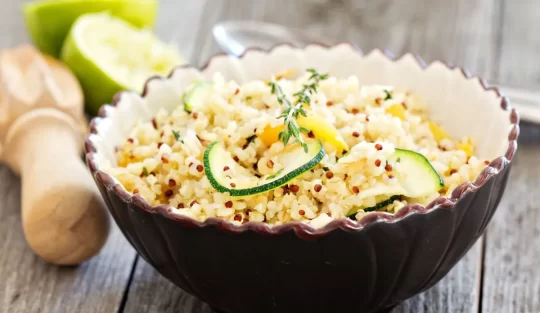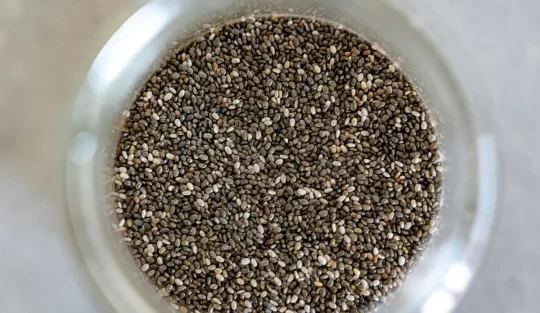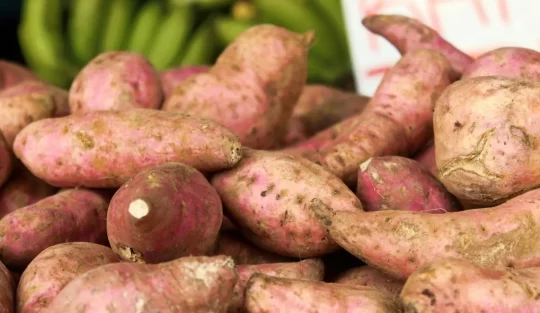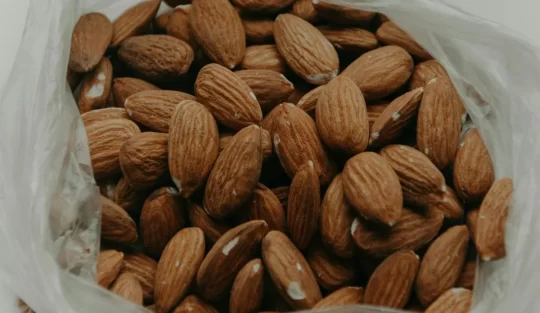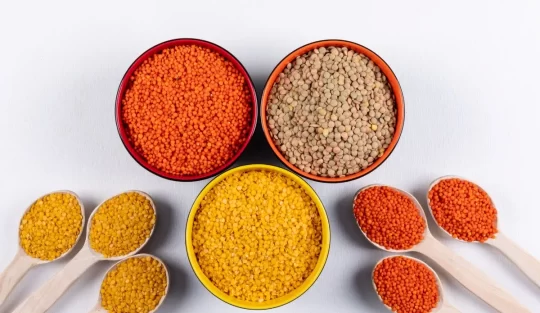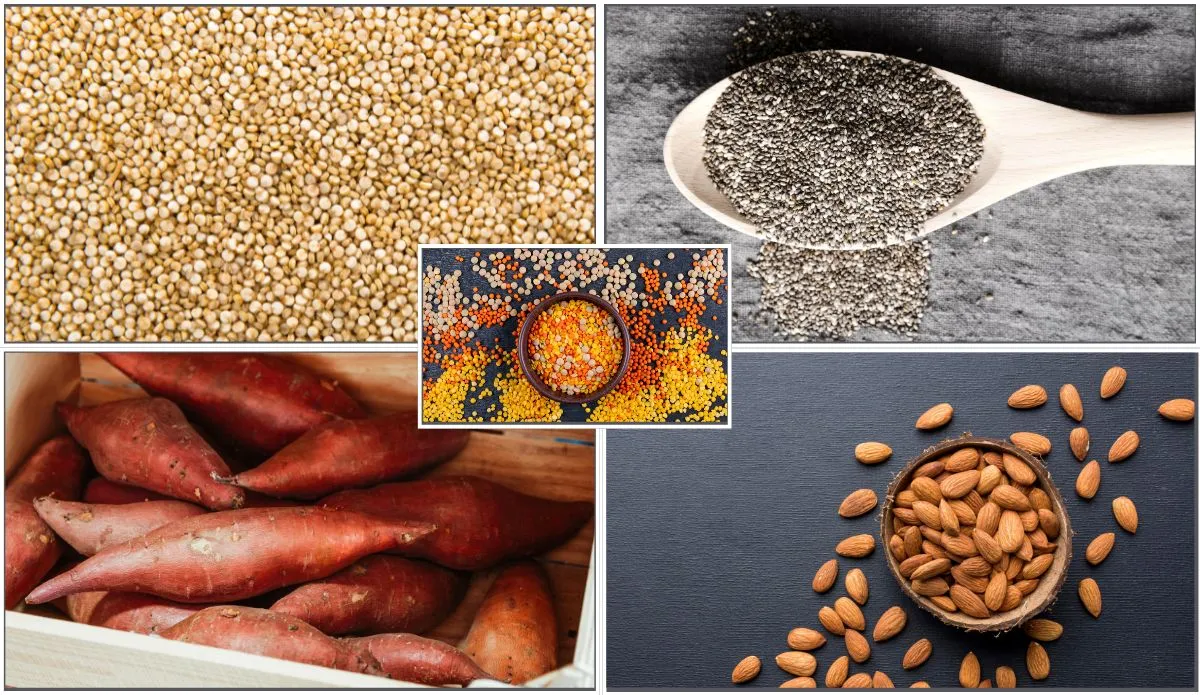
Maintaining strong energy levels is critical in today’s fast-paced society. While many people rely on caffeine and sugary snacks for a rapid energy boost, there are healthier and more sustainable alternatives. Several underestimated meals can deliver a natural energy boost without crashing. In this blog, we’ll look at five energy-boosting foods that deserve greater recognition for their capacity to keep you going throughout the day.
Quinoa
Quinoa is often regarded as a superfood, and for good reason. This ancient grain is high in complex carbs, which provide a consistent supply of energy. Unlike simple carbs, which can induce a blood sugar surge and subsequent collapse, complex carbs provide long-term energy. Quinoa is also high in protein and fiber, making it an excellent choice for sustaining energy levels.
Nutritional highlights
- Quinoa is high in magnesium and iron, both of which promote energy generation. Magnesium aids in the conversion of food into energy, whereas iron is required for oxygen transport in the blood.
- Quinoa is classified as a complete protein since it includes all nine necessary amino acids. This is especially useful for vegetarians and vegans trying to achieve their protein requirements.
- Quinoa is high in fiber, which helps regulate blood sugar levels, reducing the spikes and crashes that can lead to weariness.
How to Include Quinoa in Your Diet
- Breakfast Bowls: Prepare quinoa with almond milk and top with berries, almonds, and honey for a nutritious breakfast.
- Salads: Add cooked quinoa to salads to improve protein and fiber content.
- Side Dish: Combine quinoa with veggies, herbs, and a light dressing to make a delicious side dish.
Chia Seeds
Chia seeds may be little, but they are potent energy sources. These tiny seeds are high in omega-3 fatty acids, protein, and fiber. The combination of these nutrients helps to manage blood sugar levels and delivers a slow, consistent flow of energy.
Furthermore, chia seeds are highly hydrated, which is critical for energy maintenance.
Nutritional highlights
- Omega-3 Fatty Acids: Chia seeds are a great plant-based source of omega-3 fatty acids, which are anti-inflammatory and promote brain function.
- Antioxidants: Chia seeds are high in antioxidants, which assist to reduce inflammation and counteract oxidative stress, both of which can cause exhaustion.
- Calcium, iron, and magnesium: These minerals are essential for bone health, oxygen transportation, and energy production.
How to Add Chia Seeds to Your Diet
- Smoothies To enhance your energy, add a tablespoon of chia seeds to your smoothies.
- Pudding: To make a nutritious pudding, combine chia seeds, coconut milk, and your preferred sweetener and let it sit overnight.
- Baking: Use chia seeds in muffins, bread, and pancakes.
Sweet Potatoes
Sweet potatoes include a high concentration of complex carbs and fiber, both of which are essential for sustained energy. They also include vitamins A and C, as well as manganese, which aids in energy synthesis at the cellular level.
Sweet potatoes’ natural sugars are slowly released into the bloodstream, offering a steady energy boost.
Nutritional highlights
- Sweet potatoes are high in beta-carotene, which helps with immune function and overall health.
- Sweet potatoes are high in potassium, which assists with fluid balance and muscle performance.
- Vitamin C: This vitamin boosts the immune system and aids in iron absorption from plant-based diets.
How to Incorporate Sweet Potatoes into Your Diet:
- Baked Sweet Potatoes Bake sweet potatoes and top with black beans, salsa, and avocado for a healthful supper.
- Sweet Potato Fries: Cut sweet potatoes into fries, cover in olive oil and seasonings, and bake until crispy.
- Mashed Sweet Potatoes: Make a soothing side dish by mashing cooked sweet potatoes with butter and cinnamon.
Almonds
Almonds are a terrific energy-booster. They are high in healthy fats, protein, and fiber, which help you feel full and invigorated. Almonds also contain magnesium, a mineral that is essential for energy synthesis.
A handful of almonds can deliver an immediate and sustained energy boost without the sugar crash found in many other snacks.
Nutritional highlights
- Almonds are abundant in vitamin E, an antioxidant that helps cells resist oxidative damage.
- Riboflavin and Niacin are B vitamins that help turn food into energy.
- Healthy Fats: Almonds’ monounsaturated fats are heart-healthy and give sustained energy.
Tips for Including Almonds in Your Diet
- Snacks: For a quick snack, grab a handful of almonds.
- Smoothies: Add almonds to your smoothies for creaminess and nutrition.
- Spread almond butter on whole-grain toast or apple slices for a delicious snack.
Lentils
Lentils are an underappreciated energy source. They are high in complex carbs and fiber, which give a consistent source of energy.
Lentils are also high in protein and iron, both of which are required for energy maintenance. Including lentils in your diet can help reduce weariness and keep you active all day.
Nutritional Highlights
Folate: Lentils are high in folate, which helps with overall health and energy generation by aiding in the creation of red blood cells.
Potassium and Magnesium: These minerals aid in fluid equilibrium and muscle function, both of which are necessary for prolonged energy.
Lentils have a low glycemic index, which means they release energy gradually and contribute to stable blood sugar levels.
How to Include Lentils in Your Diet
- Soups And Stews: Lentils are a warm and nutritious addition to soups and stews.
- Salads: Combine cooked lentils, veggies, herbs, and a mild vinaigrette for a protein-rich salad.
- Curries: For a balanced supper, add lentils to curries and serve with brown rice or quinoa.
Frequently Asked Questions About Energy-Giving Foods.
Which Food contains Less Energy?
Foods abundant in simple carbs and sweets, such as candy, soda, and baked goods, provide rapid energy but frequently cause a crash quickly after. These foods do not include the fiber and protein required to maintain energy levels over time.
Which Food is High in Energy?
Quinoa is regarded as one of the most energy-dense foods due to its high concentration of complex carbs, protein, and critical elements.

